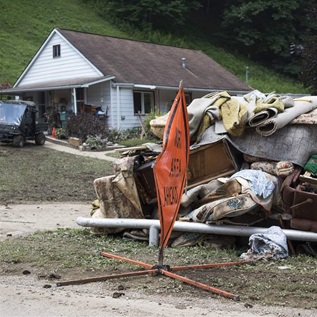Oregonians Support Public Safety Reform
Governor Kitzhaber Calls for Improvements to the Corrections System
Governor Kitzhaber today called for sentencing and corrections changes to improve the effectiveness of public safety programs and reduce costs for taxpayers. The Governor signed an executive order expanding the scope of the commission and highlighting new polling data that suggests Oregonians support significant reforms to improve the corrections system while reducing costs.
“With Oregon's biennial corrections budget now exceeding $1.4 billion, we can no longer delay improvements to our corrections system here in Oregon," said Governor Kitzhaber. “It's time for us to re-examine which policies are working and fix those that are not providing a clear benefit to our public safety.”
In February of this year Senate President Peter Courtney (D-Salem), Co-Speaker Bruce Hanna (R-Roseburg) and Co-Speaker Arnie Roblan (D-Coos Bay) wrote a letter to Governor Kitzhaber expressing support for continuing work begun by the Commission on Public Safety. The new Executive Order expands the Governor's Public Safety Commission to include members from law enforcement and Oregon's district attorneys.
With technical assistance from the Justice Reinvestment Initiative of the Bureau of Justice Assistance (U.S. Department of Justice) and the Pew Center on the States' Public Safety Performance Project, the Commission will analyze the drivers of state corrections spending, engage a broad group of stakeholders including crime victims groups, and make policy recommendations to the 2013 legislature.
“Oregon is on an unsustainable path. We need to find a way to create safer communities in Oregon at lower cost,” said Rep. Chris Garrett (D-Lake Oswego). “There is a smarter way to approach public safety that will allow us to get the most for each dollar we spend, and I'm confident that the continued work of this group will yield recommendations that lead to better results in public safety across the board.”
“Relying on incarceration alone is unsustainable. Oregon needs to make the most of all the tools available to us,” said Sen. Jackie Winters (R-Salem). “Keeping the public safe will always remain our No. 1 priority, but we must create a more efficient system — one that keeps our communities safe, saves taxpayers' money and provides better outcomes.”
A recent statewide poll of likely Oregon voters suggests strong support for sentencing and corrections reforms that produce better public safety results, including policies that would reduce the prison population and related spending. The poll was conducted in January of this year by The Mellman Group and Public Opinion Strategies.
“Across the country, states are developing policy solutions that both improve public safety and reduce taxpayer expense,” said Jake Horowitz, State Policy Director of the Public Safety Performance Project. “Oregon's leaders from both parties and all branches of government are taking an important step toward a more effective corrections system.”
“Oregon has been in the forefront of criminal justice policy matters for many years and done a lot of things right that other states are only now discovering,” said Oregon Supreme Court Justice Paul J. De Muniz. “This does not permit us to be complacent, or reluctant to pursue better results from our public safety investment utilizing proven cost effective methods to hold offenders accountable, reduce victimization, and control crime.”
Governor John A. Kitzhaber's Office











